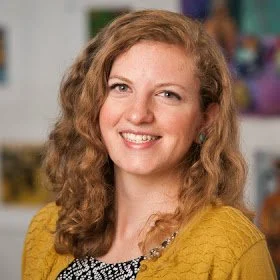There is a Ghost Shepherd that comes in my dreams
the face: Missing. Can I pray to God in dreams?
It’s illegal to harbor you, runaway.
In my roof I hear you sleepwalk and pin dreams.
The bulb burned out when I prayed for you in bed;
an angel band plays in my filament dreams.
Not all of what is hidden on top will stay.
The truth will fall as weight grows heavy in dreams.
How have I been deceived in place and in time?
We would meet beneath the steeple and spin dreams.
We tossed the rock through the angel’s stained glass heart;
in the sanctuary the stone weeps, then dreams.
Have I been baptized with only dream water?
Which were my crimes and penance only in dreams?
There is no separate pillager or poet,
I dream when I ruin, and ruin in dreams.
How can I shake the dust off my feet? My eyes,
drowsy and my feet cannot begin dreams?
Did the Ghost Shepherd shake my dust off His feet?
Or, on the Sabbath, is there a faceless Heather in His dreams?
Judge’s Comments:
This poem's sophistication is impressive: Speculative and lyrical, it's a ghazal that deftly uses lyrical word play to explore the speaker's complex relationship with reality and with God, who may have ghosted the speaker. Reminding me of the tension in John Donne's holy sonnets, the poem opens with the speaker contemplating the absent face of a "Ghost Shepherd" in her dreams, and ends by asking if she may be "faceless . . . in His dreams," suggesting fear of erasure even as the poet names herself. It is juxtapositions like this one that unfold in striking ways throughout the poem. For instance, in one couplet, the speaker says while a "bulb burned out" during her prayers, an "angel band plays" in her "filament dreams." In another couplet, the speaker confesses to throwing a "rock through the angel's stained glass heart," then observes how "in the sanctuary, the stone weeps, then dreams." Thus, this poem has earned first place for its metaphysical musings and its originality!
Heather Hanlon
Poet’s Statement:
I started writing this poem in a Poetic Forms workshop while working toward my undergraduate degree. I have been editing it for probably eight years. I am a big believer in the power of editing. I tell myself that if I practice this trade for long enough, I will find my voice and my way. I was very inspired by Agha Shahid Ali's book of ghazals Call Me Ishmael Tonight. Like Ali, I also struggle to understand the kind of interaction I'm supposed to have with a God.
Part of the thoughts in this poem started when I was really little and stayed overnight at my great aunt's house. I remember thinking how strange it felt to stay the night in a foreign place. I wished there was a night light. In the middle of the night I woke up and thought I saw someone in a white nightgown sitting at the foot of my bed. I was scared so I rolled over and pulled the covers over my head. This is so much what all of life is like, from childhood to adulthood. There is the supernatural (or even the everyday) and my inability to grasp it, my inability to grasp the point of it, to even grasp the intentions. So I dream, throw stones, hide, harbor, wonder.

